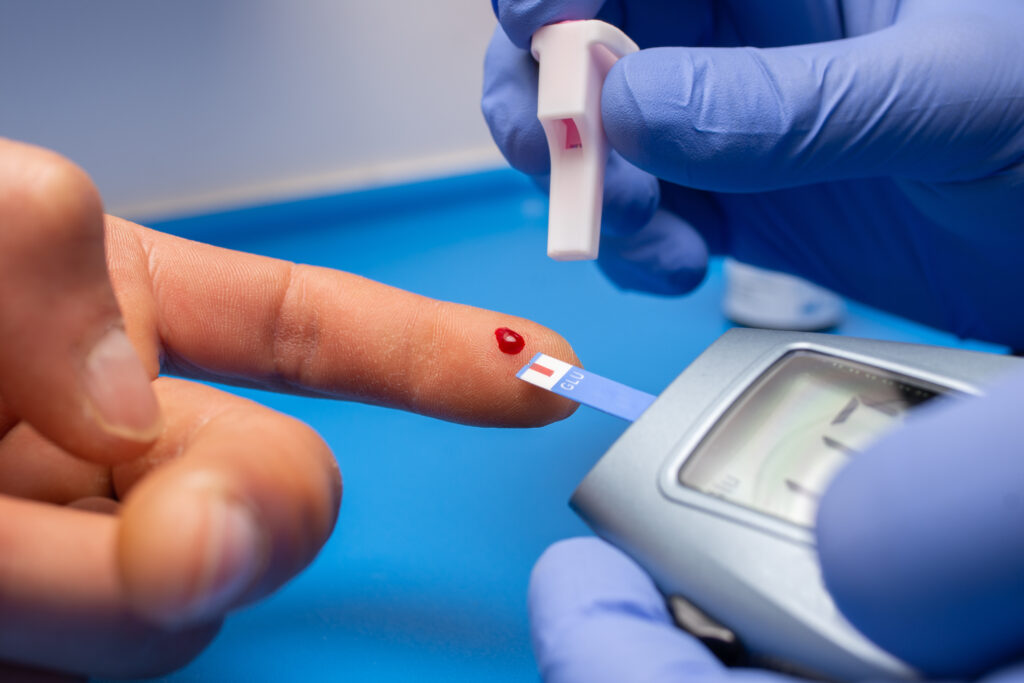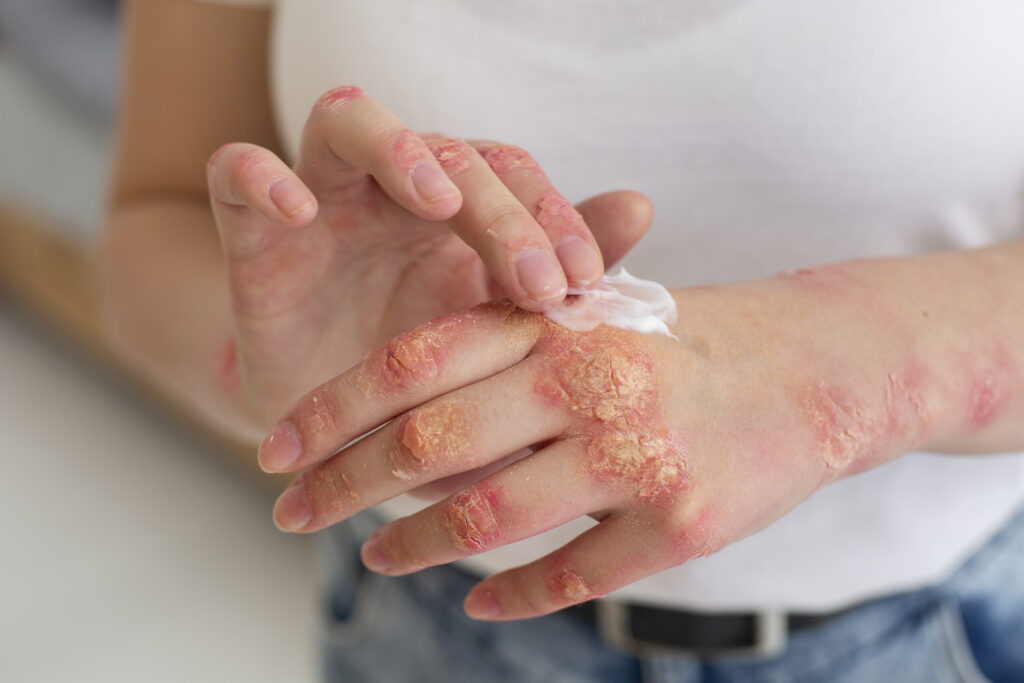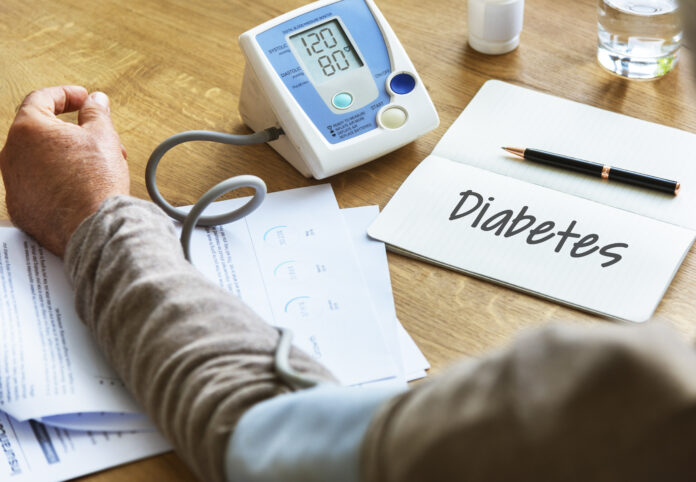People who have difficulty managing their blood glucose levels live their lives with diabetes and experience some common symptoms like excessive thirst, increased infections, and frequent urination. Type 1 diabetes usually happens in childhood. In this type, the immune system attacks the pancreas, which affects insulin production. Symptoms of this type 1 diabetes appear suddenly. After the age of 40, most people experience symptoms of type 2 diabetes. In this type, the body stops producing insulin and cannot use it. People often cannot diagnose it timely, so they don’t take precautionary measures. Higher blood glucose levels or uncontrolled diabetes are hazardous to your health. It may wreak havoc on your health and make you sluggish or cranky.
Diabetes-related health conditions like nerve damage, heart disease, or stroke are the most serious effects of blood sugar swings. So to check whether you have diabetes or not, one of the following must apply to you:
- If Your blood glucose after fasting is 120 milligrams per deciliter (mg/dl) or elevated.
- If Your blood glucose after taking meals is 200 mg/dl or more.
- If Your hemoglobin is 6.5 percent or more.
According to ADA, you may not feel diabetes type 2 when your blood glucose level is at its peak. Everyone has different symptoms but some have no symptoms at all. So it is very tricky to diagnose diabetes type 2 in time.
If you feel your blood glucose level is going out of the optimum range, you need to take action. Uncontrolled diabetes would not show its symptoms until you have a prolonged duration with hyperglycemia. You must consult with your healthcare advisor to set a medication plan for you if they determine that your glucose level is not well controlled.
Uncontrolled means different for different people. So to keep your glucose level at optimum levels is important. According to new research, 6.5 to 7.5 percent is a good level but some endocrinologists thought after 6.5 percent it becomes dangerous.
Other groups negate the hypothesis because according to them, elderly people are more likely to develop blood glucose swings too far downwards with minimum warning signs. So trying to keep their glucose at a lower level may cause hypoglycemia in them. Low levels of blood glucose levels put you at a higher risk of becoming weak, dizzy, or falling.
How to Check Your Blood Sugar Levels Glucose monitoring is an important tool to help you get your blood sugar under control. You can do it by yourself by using a glucometer that analyzes a drop of blood. It may be drawn by sticking your finger with a lancet. You can check your blood sugar before meals at fasting, after meals, and two hours after a meal. At these points, your blood glucose must be 100 mg/dl, 120 mg/dl and 140 mg/dl respectively. But in case of any fluctuation, go to your doctor and now set your blood sugar goals according to their recommendations.
Glucose monitoring is an important tool to help you get your blood sugar under control. You can do it by yourself by using a glucometer that analyzes a drop of blood. It may be drawn by sticking your finger with a lancet. You can check your blood sugar before meals at fasting, after meals, and two hours after a meal. At these points, your blood glucose must be 100 mg/dl, 120 mg/dl and 140 mg/dl respectively. But in case of any fluctuation, go to your doctor and now set your blood sugar goals according to their recommendations.
You can check your blood glucose level multiple times a day by wearing a continuous monitor. This is compulsory for patients of diabetes type 1 or type 2 with an intake of insulin. How many times you can monitor your blood sugar level per day depends on many factors such as whether you are taking insulin or not, whether you are taking oral medications, and how old your diabetes is.
The American Academy of Physicians suggested that people with diabetes type 2, with controlled blood sugar levels, don’t need to check it daily. Even such patients should check it twice a week. Because checking too often may lead to unwarranted panic over daily fluctuations and bearing the pain of too-frequent lancet pricks is unnecessary. So it is advised to diabetes type 2 patients that daily glucose self-testing has no benefit, especially if they are not on insulin or medications associated with hypoglycemia.
Why is Your Diabetes Uncontrolled?
Why do you have uncontrolled diabetes? Even if you are using insulin and following your doctor’s guidelines, your blood sugar level is so high, that your doctor needs to adjust the treatment plan or change the medications. Because these are the horrifying symptoms of an elevated level of blood glucose.
Secondly, if you have symptoms of diabetes and still are not receiving proper treatment, it may result in poor mental and physical health. Uncontrolled diabetes can impact a person’s quality of life, and if blood sugar levels remain high, it will be life-threatening. So whenever you recognize the signs and symptoms you would get an early diagnosis and take action to prevent complications from arising.
Here are signs and symptoms, when a person needs help with the treatment of diabetes. Whenever you experience these signs, consult your doctor promptly.
High Blood Glucose
The most obvious sign of getting medical assistance for diabetes is high blood glucose readings. Elevating readings indicate that the matter is going towards severity. Talk to your doctor. Work out for your treatment as your doctor advises you to target glucose levels. These guidelines may vary from person to person. For a healthy person blood sugar levels are usually 80–120 milligrams per deciliter (mg/dl) before meals and under 170 mg/dl, two hours after eating. Some positive changes in your lifestyle and proper medications can bring your blood glucose levels within an optimum range. But in case of a steady rise in blood glucose level, you need to speak to your doctor as they need to adjust the treatment procedure and medications as well.
Frequent Infections
High blood sugar levels cause a frequent increase in a person’s susceptibility to infections. you need to see a doctor if you start to have more frequent infections or if your injuries take longer to recover from a wound than they did before.
In the case of uncontrolled diabetes, you may develop conditions such as:
- Skin infections, such as ulcers or sores, especially on the feet and legs.
- Gastrointestinal infections.
- Respiratory diseases like cough, influenza, or flu.
- yeast infections.
Lower immunity worsens the conditions of patients with diabetes. If you have high levels of blood glucose and lower immunity, yeast will feed on your hind limbs and it will put you at risk of greater yeast infections. Infections that occur with diabetes take longer to heal and become more severe than in other people. If left untreated, these infections may lead to a life-threatening condition, sepsis.
Uncontrolled diabetes causes ulcers on the feet, which often leads to tissue death and raises the need for amputation. Keep a regular check on your skin changes, especially in feet and hands. Seek medical help as soon as they develop any signs of infection.
Increased Urination
Uncontrolled diabetes is diagnosed precisely by an evident sign of frequent urination. Both diabetes type 1 and 2 have this sign. Due to this disease, patients approximately urinate about 1–4 quarts of urine. If left untreated you may release up to 15 quarts of urine a day. This condition is a symptom of hyperglycemia, where the body struggles to excrete excess glucose in the form of fluid. At higher sugar levels, you need to drink plenty of water to produce more urine.
Being Extra Thirsty Feeling thirsty and needing to drink more than usual is the most prominent sign of uncontrolled high sugar levels. Your kidneys work harder to get rid of extra glucose and they convert it in urine. This urine is released more frequently to excrete extra blood glucose. So you feel more thirst and increase your water intake. Therefore, it is a common observation that people with diabetes feel frequent thirst. This thirst leads to more water intake that saves you from being dehydrated or lazy.
Feeling thirsty and needing to drink more than usual is the most prominent sign of uncontrolled high sugar levels. Your kidneys work harder to get rid of extra glucose and they convert it in urine. This urine is released more frequently to excrete extra blood glucose. So you feel more thirst and increase your water intake. Therefore, it is a common observation that people with diabetes feel frequent thirst. This thirst leads to more water intake that saves you from being dehydrated or lazy.
Hungrier Than Usual but Losing Weight
Uncontrolled diabetes raises an unusual feeling of hunger. People with higher levels of blood sugar find that they eat hungrier than usual, which is a sign of a serious health condition called polyphagia. But the astonishing point is, that you eat more due to diabetes but still lose weight for no apparent reason. This may happen because your body is not getting energy from glucose but it is turning to muscle or fat. Breaking down of these muscles and fat causes an unhealthy weight loss that affects your appetite. Moreover, you feel weakness and frequent falls.
Feeling Tiredness
Fatigue and tiredness are symptoms of uncontrolled diabetes. When your body is not processing insulin properly or you don’t have sufficient amounts of insulin, the sugar stays in your blood rather than getting into your cells to be used for energy. Frequent urination leads to dehydration, which is another contributing factor to fatigue.
Blurry Vision and Frequent Headaches After experiencing diabetes symptoms, you may feel that your vision is not as clear as it used to be. Things may appear blurry to you. Uncontrolled diabetes causes a fluid leakage in your eyes that leads to swollen lenses. Thus the shape of the lens changes and you cannot focus properly. This causes blurred vision. This may make it difficult for you to drive or do any visionary work. You experience a frequent headache and dizziness.
After experiencing diabetes symptoms, you may feel that your vision is not as clear as it used to be. Things may appear blurry to you. Uncontrolled diabetes causes a fluid leakage in your eyes that leads to swollen lenses. Thus the shape of the lens changes and you cannot focus properly. This causes blurred vision. This may make it difficult for you to drive or do any visionary work. You experience a frequent headache and dizziness.
Sores Heal More Slowly Than Usual
In the presence of uncontrolled blood sugar, Cuts, scrapes, bruises, and other wounds heal more slowly. Blood flow to the hind limbs is lower than other parts of the body and diabetes affects the blood circulation that results in nerve damage. This causes delayed healing in lower areas of the body because there is not enough blood flow. Diabetes makes your minor wounds prone to infections that become very serious sometimes and as a result, amputation of the foot becomes necessary. Diabetes causes foot ulcers that are identified by drainage seeping into your socks or an unpleasant smell.
Tingling and Numbness in Hands and Feet
uncontrolled blood sugar can cause diabetic neuropathy. It is a condition in which higher levels of blood glucose cause nerve damage. This results in numbness or tingling sensations in your hands and feet with a severe pain. The pain becomes severe at night. Neuropathy is the most common sign of uncontrolled diabetes in people who have been suffering from the disease for a long time.
Developing Blisters and Dryness on Skin If you have diabetes, small pieces of extra skin, called skin tags, may form in the creases of the skin. This is due to the heavy weight of the body and thick areas of soft skin) may form on the back of the neck or hands, armpits, face, or other areas. So try to lose your weight promptly. These can be a sign of insulin resistance. Some severe warning signs of high blood sugar are blisters, infections, dryness, itchiness, discolorations, and abnormalities of the skin. Check with your doctor if these skin changes develop in your body. You can manage these symptoms by keeping your blood sugar levels in check. Conditions like acanthosis nigricans are also diagnosed as signs of uncontrolled diabetes.
If you have diabetes, small pieces of extra skin, called skin tags, may form in the creases of the skin. This is due to the heavy weight of the body and thick areas of soft skin) may form on the back of the neck or hands, armpits, face, or other areas. So try to lose your weight promptly. These can be a sign of insulin resistance. Some severe warning signs of high blood sugar are blisters, infections, dryness, itchiness, discolorations, and abnormalities of the skin. Check with your doctor if these skin changes develop in your body. You can manage these symptoms by keeping your blood sugar levels in check. Conditions like acanthosis nigricans are also diagnosed as signs of uncontrolled diabetes.
Swollen or Bleeding Gums
A dangerous complication of uncontrolled diabetes is swollen or bleeding gums. These symptoms make it difficult to manage diabetes because the body releases more glucose into the bloodstream as a response to infections.
Saliva in your mouth contains glucose that feeds bacteria that are responsible for causing plaque on teeth and gum diseases. Red or inflamed gums are the alarming signs of gum disease. Their treatment is essential because unaddressed bleeding gums progress to a serious dental problem, periodontitis, in which your gums are pulled away from your teeth. It also causes tooth loss, the appearance of pus, and ulcers. So go to a dental professional to prevent this damage to your gums and teeth but the most important is to control your diabetes.
Conclusion
If you experience any one of the above symptoms, you must see your doctor as soon as you can. Because these signs confirm that you are a diabetic person. You may have diabetes without knowing it and your doctor will help you to diagnose it. The sooner you start to manage your diabetes level, you have more chances to slowing its progress and reducing the risk of disease.
If you feel any chest pain, seek a medical emergency without any delay.







